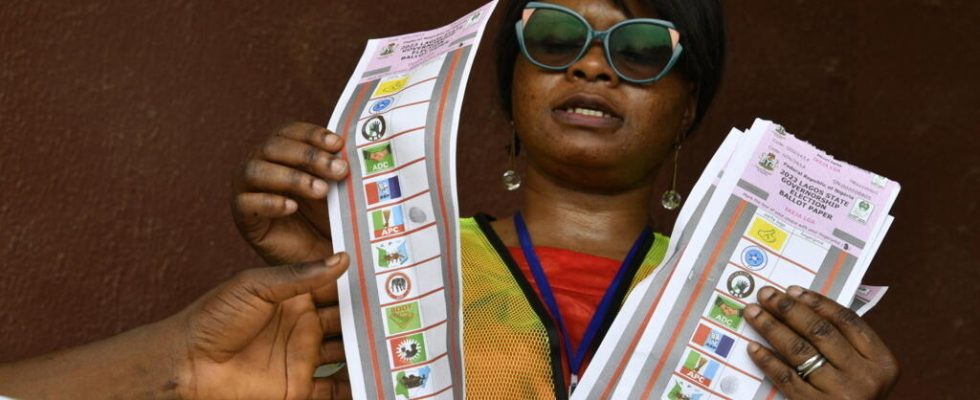In Nigeria, the announcement of the results of the gubernatorial elections – which were held yesterday in 28 out of 36 states – began this Sunday afternoon. One of the challenges of this election is based on the ability of the opposition to confirm its presidential results by taking power in the regions where its candidates have achieved good scores. The Labor Party of Peter Obi, the sensation of the presidential election, is particularly scrutinized. For the moment, the Congress of Progressives (APC), in power, has won the most states and is leading the race in the megalopolis of Lagos, where Peter Obi had nevertheless won in the presidential election.
With our correspondent in Lagos, Liza Fabbian
The outgoing governor of Lagos, Babajide Sanwo-Olu, from the majority party, has a clear lead over the Labor Party candidate, Gbadebo Rhodes-Vivour, who is struggling to impose himself. He has already started to challenge this trend on Twitter. He says to himself ” convinced that the results published by INEC do not represent the wish of the majority of Lagosians and he asserts that “ the results collected by the agents [du parti] on the ground indicate that[il] won this election. »
In the light of this, I am convinced beyond any doubt that the results being released by INEC do not represent the wishes of the majority of peaceful Lagosians.
More so the results from our field agents and situation room indicated that we won this election.
— Gbadebo Rhodes-Vivor (@GRVlagos) March 19, 2023
The campaign was very tense in Lagos, the stronghold of President-elect Bola Tinubu.
The Labor Party accuses the APC of stoking tensions between the Yoruba community – which is the majority in the region – and the Igbos – the ethnic group of opponent Peter Obi.
Last night Bola Tinubu’s campaign communications director said in a tweet: “ Lagos is Yoruba land (…) 2023 must be the last time the Igbos interfere in politics here. Mind your own business “. Threats that shocked supporters of the Labor Party.
For the moment, it is still unclear whether the party of Peter Obi, this third strongest in the Nigerian presidential election, will be able to take power in certain states.
In the southeastern regions, it is the People’s Democratic Party – the official opposition – which is accused of maneuvering to prevent Labor Party candidates from being elected governors.
► Read also Election of governors in Nigeria: many denounce the tensions and violence
